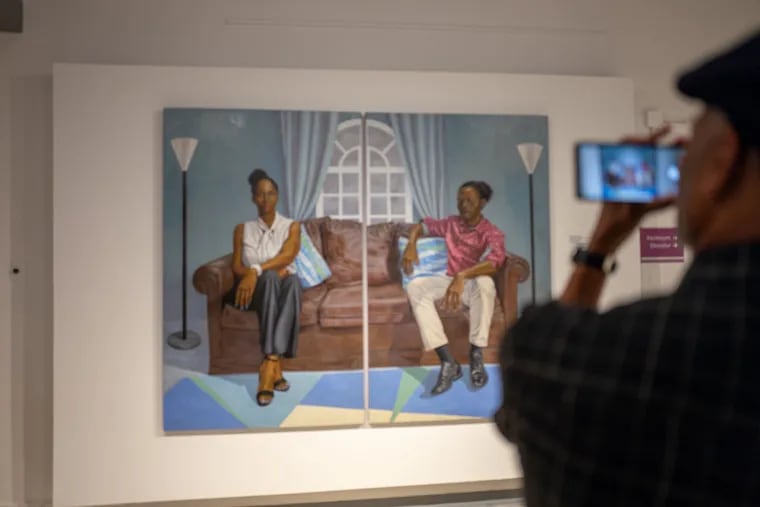
Philadelphia is a city built on resilience, creativity, and the stories that have shaped our collective history.
That history is a reflection of our cultural heritage and our city’s creative energy, and there are financial benefits in recognizing that lineage. History, the arts, and culture aren’t just add-ons to our economy, they are a core component.
This isn’t just theoretical. Cultural institutions and initiatives directly impact Philadelphia’s economy. The arts and culture sector has a $4.1 billion total economic impact, including $1.9 billion in direct expenditures and $2.2 billion in indirect economic impact. According to the Greater Philadelphia Cultural Alliance, the arts support more than 55,000 jobs across the region.
And yet, it often feels like we fail to fully capitalize on this resource. Hotels, restaurants, and local businesses can — and should — partner with cultural institutions and movements that reflect the vibrant, contemporary energy of our city.
The “Philadelphia story” has historically excluded and undervalued the vast significance of Black and brown artists and organizations, and we need to change that narrative to highlight a broader, more dynamic, and authentically representational one.
In doing so, they can attract tourists who travel not just to see our famous historical landmarks, but also to engage with the depth — and diversity — of our culture.
We were home to the 19th century’s Henry Ossawa Tanner, one of the first African American artists to surmount the limitations faced by Black artists in America and achieve international fame, and to the 20th century’s Barkley L. Hendricks, whose bold, unapologetic representations of Black life and culture reshaped the world of figurative painting.
And Philadelphia is home, in the 21st century, to artists and cultural and arts institutions that not only tell broad stories that reflect society, but that serve as critical drivers of economic growth.
The success of the BlackStar Film Festival, founded by curator and filmmaker Maori Karmael Holmes, is a testament to this. BlackStar’s impact extends far beyond cinema — it has become a cultural and economic anchor for the city, driving tourism and hospitality while centering narratives that might otherwise be marginalized. In 2024 alone, the festival attracted thousands of attendees from 40 countries to our region, bringing millions of dollars to local businesses and solidifying Philadelphia as a must-visit destination for the culturally curious.
And it’s not just BlackStar. The arts are thriving in Philadelphia institutions that integrate creativity into the fabric of their neighborhoods and communities. Take documentary filmmaker Louis Massiah’s Scribe Video Center, which has empowered local storytellers for decades, giving residents the tools to create media projects that reflect their experiences and spark dialogue.
Or the incredible success of Vashti DuBois’ Colored Girls Museum in Germantown, an institution dedicated to honoring the stories and lives of ordinary Black girls. By reclaiming narratives and celebrating the humanity of Black women, it has become a cultural landmark, a destination, and an economic draw.
Institutions like the Brandywine Workshop and Archives, which has long been a cornerstone of arts education and artistic production in the Black community, are also playing a crucial role. Through their work, they have created spaces where emerging artists can thrive, and they continue to produce art that challenges and inspires.
We have to stop thinking of the arts as something that exists on the periphery of our city’s economic strategy.
These institutions are directly connected to the economic health of the neighborhoods they serve, providing employment, fostering tourism, and sustaining local businesses.
The same is true for the “Legacy Reclaimed: The 7th Ward Tribute,” an initiative I have been part of, which highlights the past contributions of African Americans in Philadelphia while engaging contemporary artists to reimagine our city’s present. By merging history, art, and public engagement, projects like this ensure our cultural heritage isn’t just remembered but honored in a way that also sparks economic growth and community development.
The stories we tell — or fail to tell — shape how we move forward, and three high-profile, groundbreaking cultural exhibitions currently open (or opening) at legacy cultural institutions in Philadelphia offer the stories that can move us where we want to go.
“Shared Vision: Portraits from The CCH Pounder-Koné Collection,” which features paintings from the personal collection of award-winning actress CCH Pounder, and curated by Philadelphia’s Dejay Ducket for the African American Museum in Philadelphia, is a stunning collection of contemporary art that dives into the rich narratives of the African diaspora, offering a personal collection that spans continents and generations.
“The Time is Always Now” at the Philadelphia Museum of Art, curated by British curator, writer, and broadcaster Ekow Eshun, brings together artists who challenge viewers to rethink identity, memory, and race through the lens of contemporary art.
And Mickalene Thomas at the Barnes Foundation is a testament to the evolving visual language of Black womanhood.
Each of these shows is not just a gallery experience, but a broader cultural conversation that has the potential to draw thousands of visitors and dollars into our city.
For businesses in the tourism and hospitality sectors and decision-makers in the philanthropic, public-private partnership, and political sectors, this is a wake-up call. Philadelphia has long been a place where art, history, and activism intersect. But what we’re seeing now is a reimagining of how these elements can work together to shape a more equitable, economically robust future.
Cultural organizations and projects are showing us how to use our rich heritage not as an artifact, but as a living, breathing driver of change.
Culture is not a luxury, it’s a necessity. It is the engine that can fuel the next wave of economic growth in Philadelphia. But it requires vision, collaboration, and investment. We have to stop thinking of the arts as something that exists on the periphery of our city’s economic strategy.
The arts are the strategy.
Tayyib Smith is a cultural strategist, entrepreneur, advocate for arts-driven economic development in Philadelphia, and founding partner at the Growth Collective.
